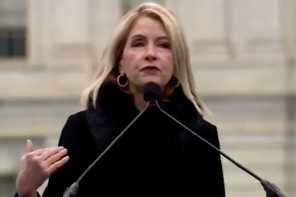Ten Questions for Ronald Aronson on Living Without God: New Directions for Atheists, Agnostics, Secularists, and the Undecided (Counterpoint, 2008).
What inspired you to write Living Without God? What sparked your interest?
I slowly began to realize that despite the stream of “New Atheist” books, most atheists, agnostics, and secularists still lacked confidence in their worldview and many of those I talked to confessed to still being at a loss when arguing with sophisticated religious believers. The forceful arguments of Harris, Dawkins, and Hitchens against God and religion still left people without answers to a very different question: how do we develop coherent and persuasive contemporary secular philosophies to live by?
What’s the most important take-home message for readers?
Living without God does not relegate us to living in an absurd and meaningless world, does not leave us all alone, forced to shape our destiny arbitrarily and without direction.
On the contrary, we belong to and fundamentally depend on many forces beyond our control: the cosmos, nature and natural history, human history, and society. This dependency gives our lives shape, meaning, and obligations—whether or not we open our eyes to see them, connects us in our deepest being with forces well beyond ourselves. Believers and spiritualists are right to look beyond our individual selves; where I disagree with them is over what we find when we look, and over needing to look using all of the wonderful and rich secular tools at our disposal.
Anything you had to leave out?
I did not discuss the political tasks of secularists in today’s America—the need to “out” ourselves in order to form a significant political force. I’ve been doing this since, in USA Today, in The Nation, in other articles and interviews. I’ve just completed an op-ed to President Obama thanking him for mentioning nonbelievers in his inauguration address but pointing out that he’s treated us as invisible during the campaign and calling for him to lead the nation in developing a genuinely multicultural sensibility towards nonbelievers as well as people of religious faith.
We are America’s largest and most invisible minority. Our goals should include agitating for the strict separation of church and state, public respect for secularists, and a mutually respectful relationship between believers and nonbelievers.
What are some of the biggest misconceptions about your topic?
A) “We are alone in an absurd universe and must make the most of it all by ourselves.”
I’m challenging many of my closest friends to see themselves in a structured, meaningful universe, to see their belonging to the cosmos, nature, history, and society, and to see how these give them their values, language, aspirations, thoughts, and feelings — and their obligations.
B) “The polls say that 92% of Americans believe in God, and that nonbelievers are a very small (5%) minority.”
The polls are wrong: In fact about one-quarter of Americans are secularists. I explain that in the October 20 USA Today, and in the introduction to the book.
C) “To not believe in God means that you think you’re smarter than believers and/or you hate religion.”
In fact, believers and nonbelievers will both be around for a long time for come, and we need to work out ways of living together in mutual respect. This runs counter to a usual stance of many nonbelievers and believers. My answer: “Believers and Secularists: We Need to Talk.”
D) “After rejecting God and religion, one only needs reason and science.”
We need much more, especially coherent contemporary secular philosophies. We need to lean heavily on history and sociology as well. My book asks and answers. What is it that we do believe if not religion? As a grandchild of the Enlightenment I especially like Immanuel Kant’s three questions: What can I know? What should I do? What may I hope?
Did you have a specific audience in mind when writing?
It’s in the title: atheists, agnostics, secularists, and the undecided. I might also add humanists, freethinkers, skeptics, and the “not very religious.”
Are you hoping to just inform readers? Give them pleasure? Piss them off?
I set out to write a beautiful and moving book, as well as one that matters to people. So I deliberately kept the chapters short and readable, and built much of what I’m saying on personal and historical examples. It is not a scholarly book, but a book to be engaged with. My goal is to help people find their bearings today without religion or God.
What alternate title would you give the book?
Finding our Bearings without Religion.
How do you feel about the cover?
It exudes energy and commands attention. An earlier version, also striking, put the reader into nature. I like my publisher’s taste, which was to make the book as current as possible.
Is there a book out there you wish you had written? Which one? Why?
A recent book: Susan Jacoby’s Freethinkers. She combines passion, intelligence, and a determination to beautifully tell a long-suppressed story.
Also, I wish I had written a 150-year-old book: The Origin of Species. It’s marvelously written as well as being a scientific and philosophical masterpiece.
What’s your next book?
Living without God in Today’s America: Political Tasks for Secularists. Or The Book of Hope. Or The Book of Gratitude.
All three are taking next steps from Living without God. The first idea idea is to take the political step, assessing our situation in the United States and the need for coming together in order to push for a genuinely multicultural society, one that has space for nonbelievers as well as believers. It will stress the need to create a secular/religious coalition on behalf of expanding multiculturalism and on behalf of the separation of church and state. The other two expand two chapters, “Gratitude” and “Hope.”




